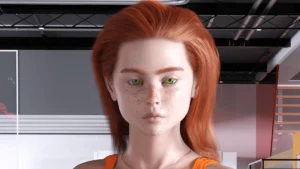
Rightful Ownership
Play Rightful Ownership
Rightful Ownership review
Explore the unique features, gameplay, and community of Rightful Ownership
Rightful Ownership is a distinctive adult-themed visual novel game that has sparked interest for its narrative style and gameplay mechanics. This article dives into what makes Rightful Ownership stand out, providing an overview of its story, player experience, and the community surrounding it. Whether you’re curious about its themes or looking for tips on how to navigate the game, this guide offers a comprehensive look at everything you need to know about Rightful Ownership.
Understanding Rightful Ownership: Gameplay and Storyline
What is Rightful Ownership About? 🕵️♂️
Let me paint you a picture. You inherit a sprawling, somewhat dilapidated estate from a distant relative you barely knew. Sounds like the start of a classic mystery, right? Well, in Rightful Ownership, that’s just the beginning of a deeply personal and often intense journey. This isn’t a simple story of moving in and redecorating; it’s a narrative that pulls you into a web of family secrets, complex relationships, and moral dilemmas.
The core of the Rightful Ownership game story revolves around your character’s struggle to claim their inheritance against a backdrop of suspicious relatives, enigmatic staff, and a past that everyone seems desperate to keep buried. The game masterfully explores themes of legacy, trust, desire, and the true meaning of “family.” What I found so gripping from the very first playthrough is that it doesn’t hold your hand. You’re thrown into this world and must use your wits and intuition to figure out who is an ally and who has their own agenda.
As an adult visual novel game, it tackles mature themes with a surprising amount of nuance and depth. It’s not just about the romance options (though they are fantastic and deeply woven into the plot); it’s about the psychological weight of every decision you make. The Rightful Ownership game story is designed to make you feel the pressure and isolation of your position, making every small victory and discovered secret incredibly rewarding.
Core Gameplay Mechanics ⚙️
So, how do you actually play? If you’re thinking it’s just clicking through text, think again. The Rightful Ownership gameplay mechanics are what truly set it apart and create its incredible replay value.
At its heart, the game is driven by a branching dialogue system and a relationship meter that is always working in the background, often in ways you can’t immediately see. Every conversation is a potential pivot point. A seemingly innocuous choice to trust someone with a small piece of information early on can dramatically alter how a crucial confrontation plays out hours later.
The most critical mechanic is the “Influence” system. Instead of a simple good/bad karma meter, you build influence with individual characters based on your actions and words. Gaining influence with one person might simultaneously lose it with another, creating a constant, delicious tension. You’re always balancing your goals, and it makes the visual novel player choices feel heavy and meaningful.
Pro Tip: Don’t try to make everyone happy on your first playthrough. It’s nearly impossible! Embrace the chaos and see where your genuine reactions take you. The most authentic stories come from those unplanned moments.
Let’s break down the key mechanics in a simple table:
| Mechanic | Description | Impact on Game |
|---|---|---|
| Branching Dialogue | Every conversation offers multiple responses, from empathetic to suspicious to flirtatious. | Directly shapes character relationships and unlocks (or locks) future story paths. |
| Influence System | A hidden numerical value representing your standing with each major character. | Determines who will help you, betray you, or reveal their secrets during critical story moments. |
| Time Management | You have a limited number of actions (e.g., “Explore the Library,” “Talk to the Gardener”) per in-game day. | Forces you to prioritize which leads to follow and which relationships to cultivate, directly affecting the gameplay pacing in Rightful Ownership. |
| Clue Journal | An auto-updating log of discovered secrets, documents, and suspicious events. | Helps you piece together the overarching mystery and is essential for making informed choices later. |
Example of a Key Player Choice: Early on, you might find a hidden letter implicating one of the estate’s staff in a past scandal. You can choose to:
* Confront them directly 🗣️ (Risky: could earn their respect or their eternal enmity).
* Keep it secret and use it as leverage later 🤫 (Strategic: unlocks new dialogue options but may change how they perceive you).
* Show it to another character 👥 (Unpredictable: could gain you a powerful ally or alert the wrong person).
I chose the second option in one playthrough, and it completely changed the endgame. That character, fearing what I knew, became my most devoted ally in a final showdown I didn’t even see coming! That’s the magic of Rightful Ownership gameplay mechanics—they create truly emergent storytelling.
Narrative Style and Player Choices ✍️
The Rightful Ownership narrative style is best described as a slow-burn psychological drama. It doesn’t rely on jump scares or overt action; instead, it builds a pervasive sense of unease and intrigue through its writing and atmosphere. The prose is detailed and immersive, making you feel the creak of the floorboards and the weight of everyone’s gaze.
This style is perfectly complemented by the game’s approach to visual novel player choices. There are very few “right” or “wrong” answers. Instead, choices are about defining your character’s personality and strategy. Are you the compassionate heir trying to unite a broken family? The cunning outsider ready to manipulate everyone to secure their claim? Or someone falling in love amidst the chaos? The narrative gracefully adapts to your role.
This is where the Rightful Ownership character development truly shines. Because the plot is so dependent on your actions, the characters around you feel incredibly dynamic. They remember your slights and your kindnesses, and their personalities unfold at a pace that feels natural. A character who seems cold and dismissive in one playthrough might reveal a vulnerable, protective side in another, all based on how you’ve chosen to interact with them. The depth of this Rightful Ownership character development is, for me, the game’s greatest achievement.
The gameplay pacing in Rightful Ownership is deliberately methodical. It understands that trust and suspicion are built over time, not in a single scene. Days will pass where you feel you’re making little progress, only to have a single conversation suddenly explode into a revelation that changes everything. This ebb and flow mimic the real pace of uncovering a deep secret, making the payoff immensely satisfying.
I remember my second playthrough vividly. I decided to be openly hostile to a particular character I’d been friendly with before. The entire story shifted. New scenes unlocked, characters I rarely spoke to became central figures, and I discovered a whole layer of the Rightful Ownership game story that I never knew existed. It felt like playing a completely different game, a testament to how powerful its narrative framework is.
Ultimately, Rightful Ownership is more than a game; it’s a narrative playground. Its unique narrative style and profound respect for player choice invite you to not just witness a story, but to live and shape it, again and again. It’s a masterclass in how to make your decisions feel like they truly matter.
Rightful Ownership offers a unique experience within the adult visual novel genre by combining a compelling narrative with meaningful player choices and character interactions. Its thoughtful pacing and storyline build-up create an engaging atmosphere that resonates with players looking for depth and immersion. Exploring this game can provide both entertainment and insight into interactive storytelling. If you’re interested in narrative-driven games with mature themes, Rightful Ownership is worth exploring.
















